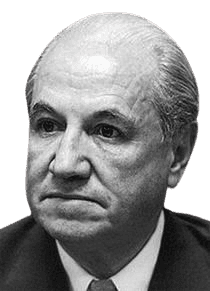Life and achievements
Early life
Raúl Prebisch was born on April 17, 1901, in San Miguel de Tucumán, Argentina, to parents of German origin. He was born and raised in a family that appreciated education, which made him develop an early passion for economics. The economic ups and downs in Argentina that Prebisch observed during his youth due to exporting agricultural products influenced him greatly. He was young when he joined the University of Buenos Aires, where he pursued economics and eventually became a lecturer.
After graduation in 1922, Prebisch joined the Argentine government and served in different economic positions. His first research was centred on the difficulties that Argentina's agricultural economy was experiencing at that time, mainly the export dependency and the volatility of the international market. These early experiences helped him form views on the nature of the relations between developed and developing countries in global trade. They paved the way for his further theoretical advancements. Before the Great Depression, Prebisch had begun to doubt the orthodox economic theories which advocated free trade as an unqualified boon.
Prebisch was significantly affected by the Great Depression that occurred in the 1930s. Argentina is no exception to this. Prebisch witnessed how the country's dependence on the export of primary products made it very sensitive to the global economic crisis. This led him to question the financial status quo and demand the kind of policies that would enable Latin American countries to industrialize and diversify their economies to lower their dependence on foreign markets.
Legacy
The main ideas most connected with Raúl Prebisch are the Prebisch-Singer hypothesis and the structuralist development approach. His criticism of the international economy called into question the liberal concepts of trade and paved the way for different paradigms of progress, especially in Latin America. Prebisch's ideas led to the formation of the policy of import substitution industrialization (ISI), aimed at reducing the importation of goods and services. In general, ISI policies could only be assessed as somewhat successful. However, they significantly altered the economic geography of Latin America.
These works made Prebisch one of the most influential figures in international economics, specifically in the policies related to developing nations. His efforts to promote better trading conditions, integration, and industrialization left a mark on theory and practice. His ideas about the new international economic order remain relevant in today's trade, development, and globalization discussions, particularly in the Third World.
Prebisch is a theorist and one of the architects of the post-World War II economic system. This was through his leadership at ECLAC and later at UNCTAD, where he articulated the concerns of developing nations. While some of his ideas have been criticized, especially the weaknesses inherent in ISI, his advocacy for structural transformation in developing countries continues to make sense.
Milestone moments
Jan 18, 1935
Establishing the Central Bank of Argentina
Raúl Prebisch was born in 1935 and was one of the founders of the Central Bank of Argentina and the first Director-General of this bank.
This was the beginning of Prebisch's very active participation in formulating national economic policies.
Prebisch served at the Central Bank during a period of world economic crisis, and his contribution was quite significant.
He was also involved in formulating policies to deal with the effects of the Great Depression on Argentina's economy, which helped him understand the frailty of export-oriented economies such as Argentina's.
His time at the Central Bank defined his future analysis of global trade relations and provided the basis for his work in international economic policy.
Jul 23, 1949
Publication of The Economic Development of Latin America and its Principal Problems
In 1949, Raúl Prebisch published the book that would be vital for developing the field of development economics: The Economic Development of Latin America and its Principal Problems.
In this study, he presented what is now called the Prebisch-Singer hypothesis, positing that trade terms were biased against industrialized and developing countries.
The publication also pointed out that Latin America had to industrialize to avoid becoming trapped in the "vicious cycle" of exporting raw materials.
This turned out to be a policy declaration for the economic rebalancing in the region.
This work established Prebisch as one of the most influential figures in development economics.
It paved the way for subsequent import substitution industrialization policies in Latin America.
May 24, 1950
Becomes ECLAC's Executive Secretary
In 1950, Raúl Prebisch joined the United Nations in a new capacity as the Executive Secretary of the United Nations Economic Commission for Latin America and the Caribbean, commonly referred to as ECLAC.
As a leader at ECLAC, he was critical in determining the direction of Latin America's economic policies in the mid-1900s.
At ECLAC, Prebisch advocated for regional integration and industrialization as the primary approaches towards development in Latin America.
He also proposed that third-world countries must chart their economic course instead of the global market.
During Prebisch's time at the ECLAC, the organization became a crucial participant in development debates and placed Latin America at the heart of the world economy.
Mar 18, 1964
Founding Secretary-General of UNCTAD
In 1964, Raúl Prebisch was appointed the first Secretary-General of the United Nations Conference on Trade and Development (UNCTAD), through which he championed developing countries in the international trade system.
His stewardship of UNCTAD focused on establishing an equitable trading environment for developing nations.
Prebisch stated that international trade favoured industrial countries and advocated for change, enabling developing countries to have better market access than developed countries.
This position enabled Prebisch to take his ideas to an international level and continue shaping trade policies that sought to decrease the disparities between developed and developing countries.
